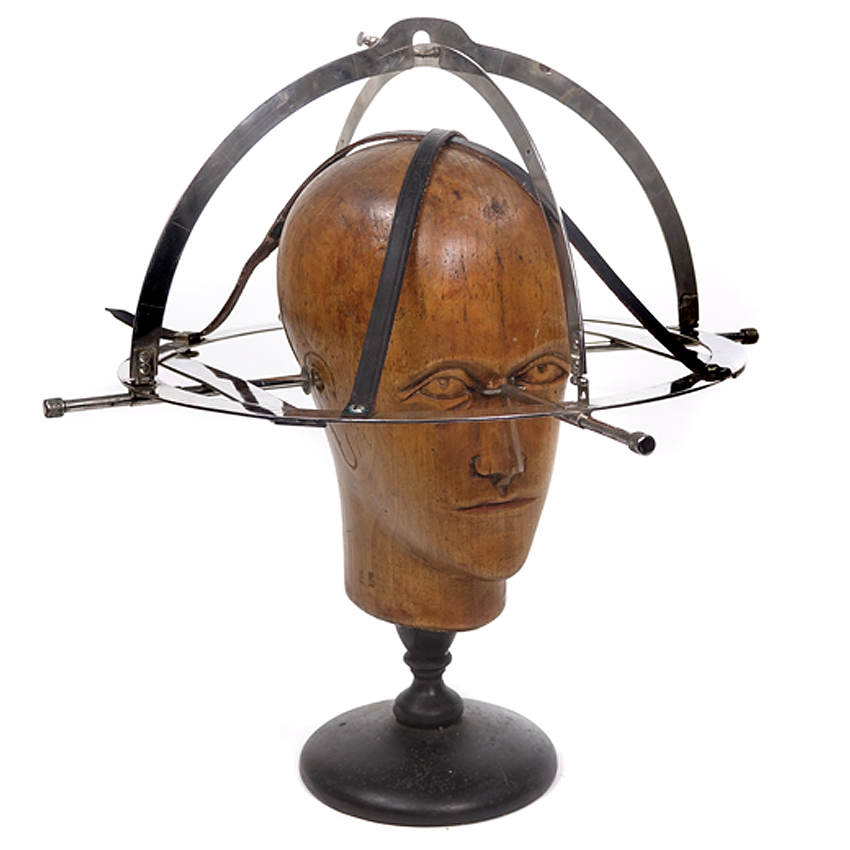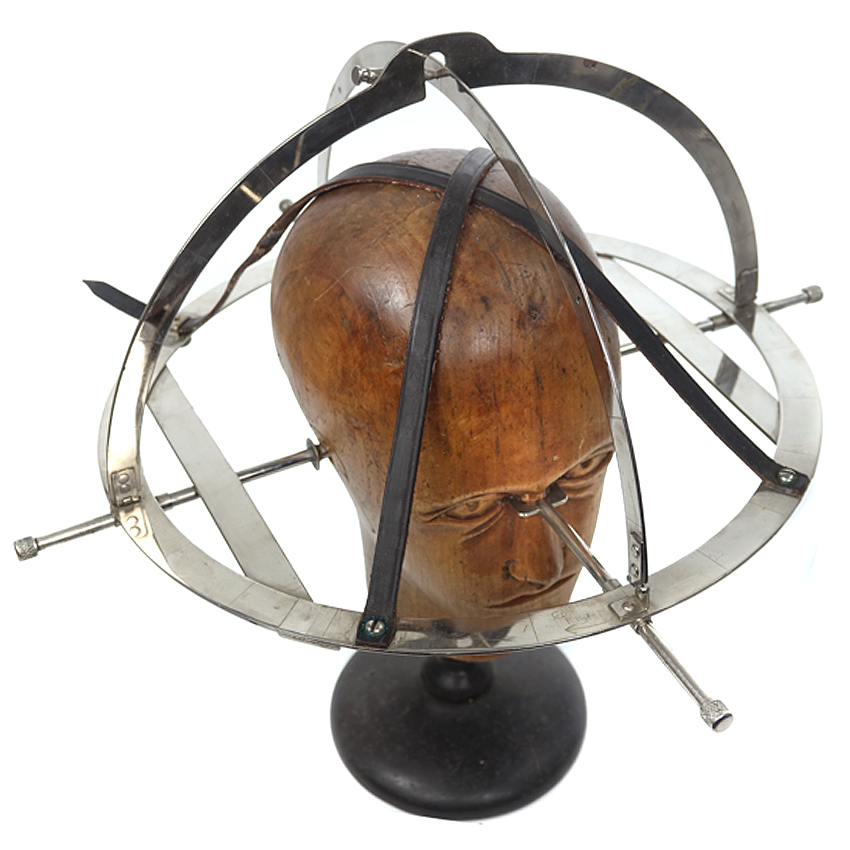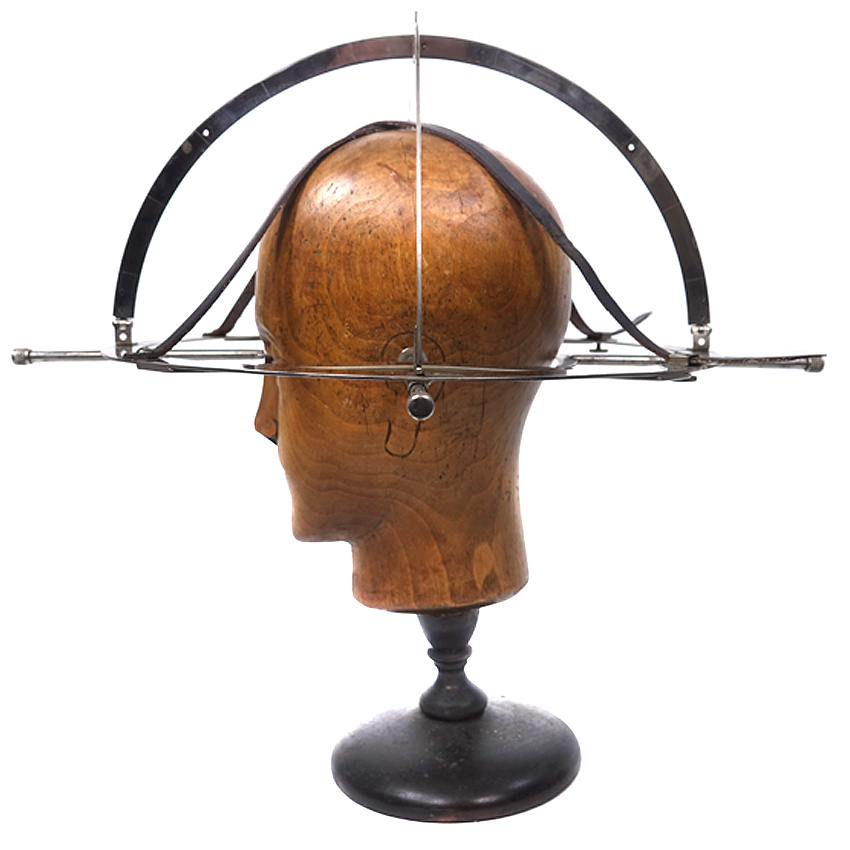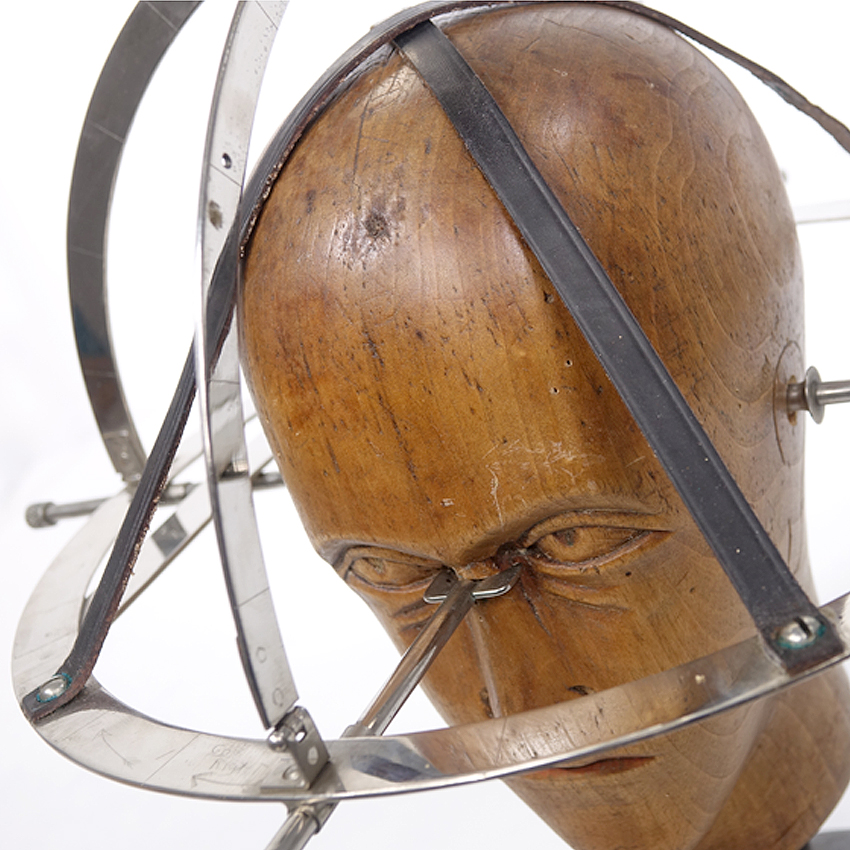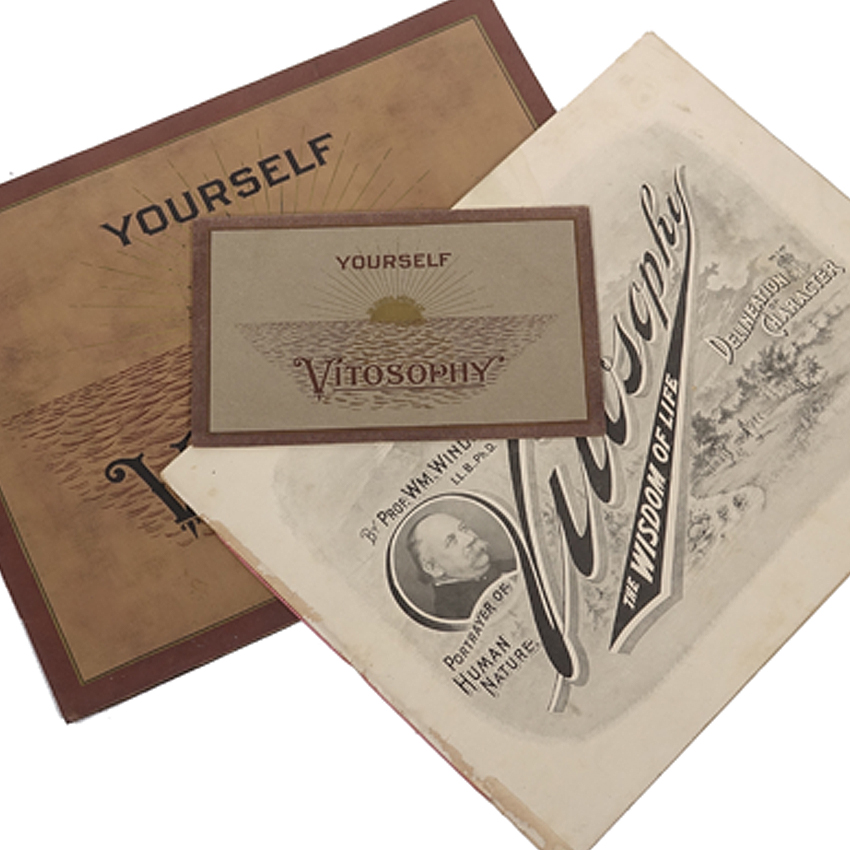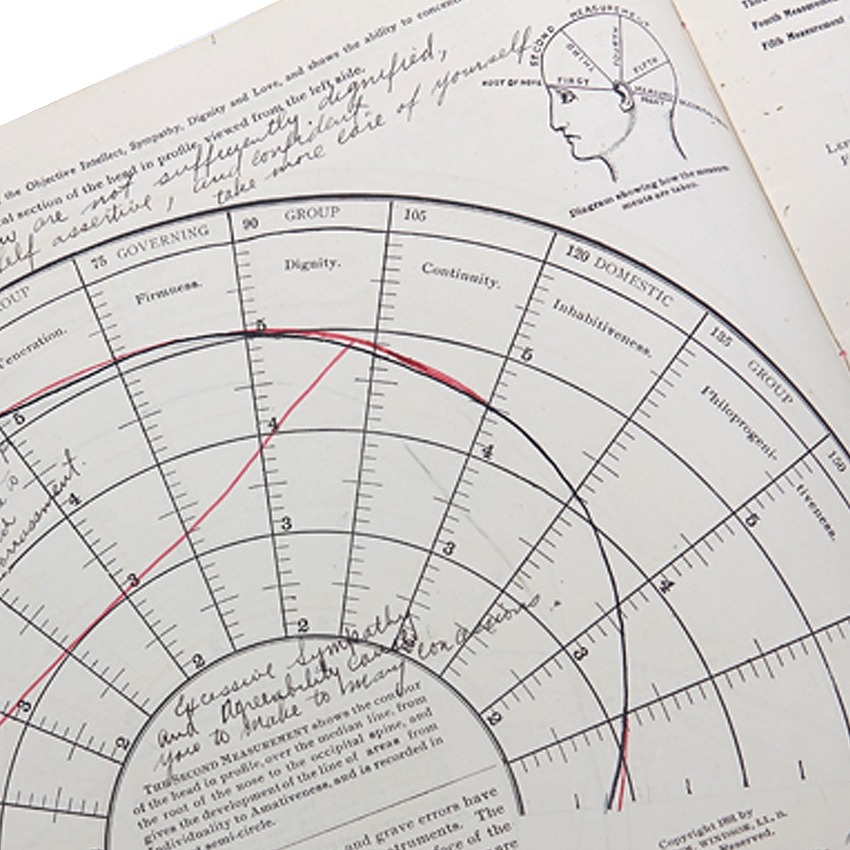Phrenology: Professor William Windsor’s Phrenometer
This item consists of briefcase containing a folding metal “phrenometer” (the phrenometer’s ring has various calibrations and markings), several booklets and papers relating to the philosophy and practice of Vitosophy as well as some annotated phrenological charts based on the analysis of clients. The briefcase was owned by a practitioner named Sydney Block, who lived in Royal Oak, Michigan. “Professor William Windsor, L.L.B., Ph.D.”( 1857-1922) was Vitosophy’s founder and the author of several books that put forth its principles and benefits. He was also a lawyer and, most importantly for our purposes, a phrenologist. Phrenology played an important role in Vitosophy. His phrenometer allowed measurements of the head to be taken that were later diagrammed and annotated. One might argue that his work was phrenology’s last iteration in 20th America. We have not previously seen a phrenometer nor can we find a record of one in any collection.
A site called “Kook Science” has the following information on Vitosophy
Vitosophy (portmanteau of the Latin vita, “life”, and the Greek sophia, “wisdom”: or “The Wisdom of Life”, “The Wise Way of Living”) is a medico-philosophical school and system of self-improvement, devised and promoted by William Windsor (and his Boston College of Vitosophy) beginning in the late nineteenth century, based heavily on phrenology and general understandings of human genetics (including eugenics) of the period. According to their own copy, Vitosophy is “a scientific system of Character Study and Delineation, a new system of Drugless Healing of all diseases, not surgical, and a complete system of Personal Culture according to standards of exact knowledge of character.”[1] Among other principles, the system teaches that there are seven temperaments — Electric, Magnetic, Alkali, Acid, Vital, Motive, and Mental — governing life, and one must abide dietary and lifestyle regimes compatible with these temperaments.

